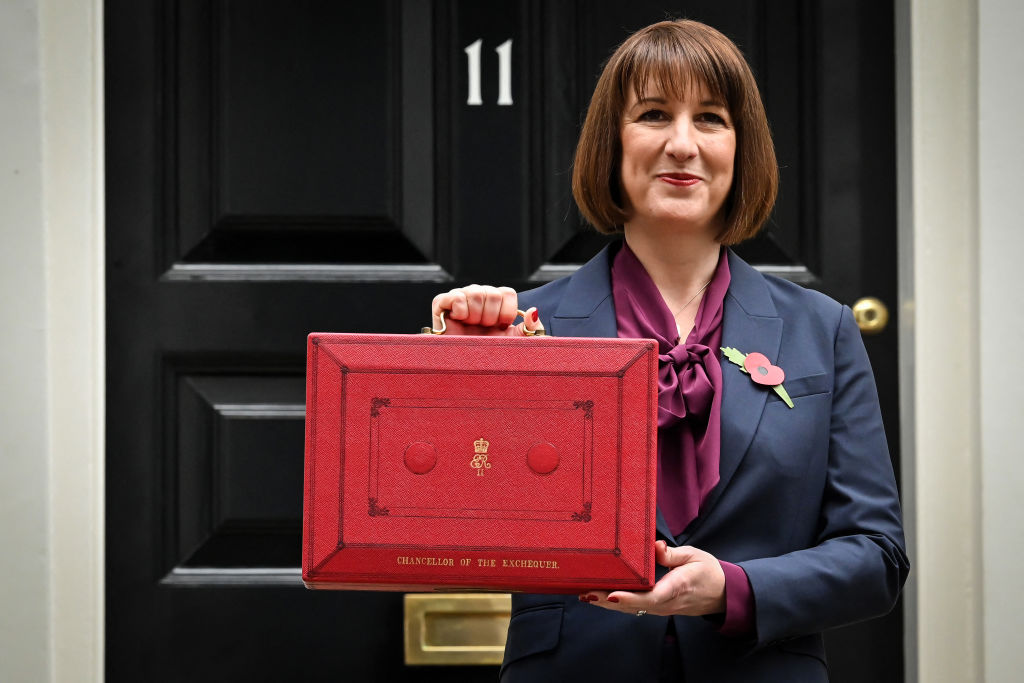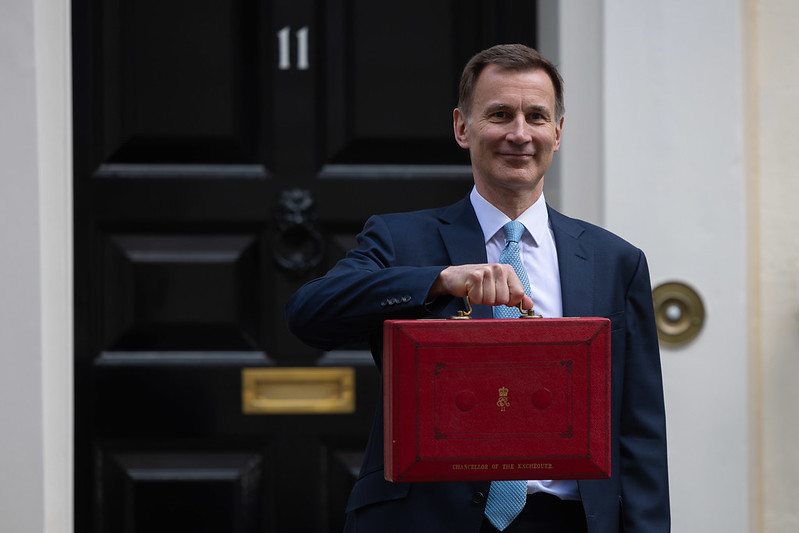Workers set for new national insurance tax cut – how much will you save?
National insurance tax rates have fallen but frozen allowances may limit the benefits.


Get the latest financial news, insights and expert analysis from our award-winning MoneyWeek team, to help you understand what really matters when it comes to your finances.
You are now subscribed
Your newsletter sign-up was successful
Want to add more newsletters?

Twice daily
MoneyWeek
Get the latest financial news, insights and expert analysis from our award-winning MoneyWeek team, to help you understand what really matters when it comes to your finances.

Four times a week
Look After My Bills
Sign up to our free money-saving newsletter, filled with the latest news and expert advice to help you find the best tips and deals for managing your bills. Start saving today!
Millions of workers are set for a national insurance (NI) tax cut worth potentially thousands of pounds this financial year, but the savings may be limited.
Chancellor Jeremy Hunt used his Spring Budget to unveil a new NI cut, after already lowering the tax rate in his Autumn Statement.
Class 1 employee NI rates have dropped to 8% as of the new tax year since 6 April.
MoneyWeek
Subscribe to MoneyWeek today and get your first six magazine issues absolutely FREE

Sign up to Money Morning
Don't miss the latest investment and personal finances news, market analysis, plus money-saving tips with our free twice-daily newsletter
Don't miss the latest investment and personal finances news, market analysis, plus money-saving tips with our free twice-daily newsletter
Analysis by Quilter suggests the average worker could take home almost £900 more per year due to the changes.
“The chancellor’s additional 2p cut to National Insurance will mean that from the start of the new tax year, millions of hard working Britons will see more money in their pockets each month,” says Shaun Moore, tax and financial planning expert at Quilter.
“This change will certainly be a crowd pleaser.”
But it is not all good news.
Frozen income tax thresholds mean many of the savings could be offset if you are earning more and get pushed into a higher tax bracket, due to the impact of fiscal drag.
Here is how the NI cut could affect you.
What is national insurance?
Anyone over age 16 pays Class 1 NI on their employment income when they start earning more than £242 a week from one job or are self-employed and making a profit of over £12,570 a year.
These contributions help workers qualify for certain benefits such as the state pension and go towards funding public services such as the NHS.
Hunt unveiled a 2 percentage points drop in Class 1 NI rates during his 2023 Autumn Statement from 12% to 10% that started from 6 January 2024.
The rate has now fallen again since the start of the new tax year to 8%.
Will a national insurance cut help workers?
The more you earn, the more you pay in NI tax so a lower rate ultimately puts more money in your pocket.
Research by wealth manager Quilter suggests the upcoming cut, combined with the January reduction, could see a worker on the average salary of £34,944 take home an extra £17.21 a week, or £894.96 a year.
Before January, a worker on this average salary would have paid £2,684.88 based on a 12% Class 1 NI rate.
This then dropped to £2,237.40 when the rate fell to 10% and will be £1,789.92 at 8%.
That creates a combined saving of £894.96.
Those earning £50,000 could see annual savings of closer to £1,500.
| Salary | 12% | 10% | 8% | Total saving |
|---|---|---|---|---|
| £20,000 | £891 | £743 | £594 | £297.20 |
| £30,000 | £2,091.60 | £1,743 | £1,394.40 | £697.20 |
| £34,944 | £2,684.88 | £2,237.40 | £1,789.92 | £894.96 |
| £40,000 | £3,291.60 | £2,743.00 | £2,194.40 | £1,097.20 |
| £50,000 | £4,491.60 | £3,743.00 | £2,994.40 | £1,497.20 |
There is a downside though.
As wages grow, there is a bigger risk of being pushed into a higher tax bracket as allowances remain frozen, warns Moore, which could leave people worse-off.
“The Conservatives have been under significant pressure to shore up support as they head ever closer to the election, and whether this move will achieve this remains to be seen – particularly given the concerns around how much a cut will impact the NHS, schooling and other state support," he says.
"In addition, this change gives nothing to pensioners who do not pay national insurance."
Moore suggests that those who find themselves with a little extra spare cash each month as a result of the national insurance cut should consider how to make the most of it, adding: “You might wish to put it away to build a rainy day fund, or perhaps invest it in your pension to help boost your quality of life at retirement.”
Get the latest financial news, insights and expert analysis from our award-winning MoneyWeek team, to help you understand what really matters when it comes to your finances.

Marc Shoffman is an award-winning freelance journalist specialising in business, personal finance and property. His work has appeared in print and online publications ranging from FT Business to The Times, Mail on Sunday and the i newspaper. He also co-presents the In For A Penny financial planning podcast.
-
 Can mining stocks deliver golden gains?
Can mining stocks deliver golden gains?With gold and silver prices having outperformed the stock markets last year, mining stocks can be an effective, if volatile, means of gaining exposure
-
 8 ways the ‘sandwich generation’ can protect wealth
8 ways the ‘sandwich generation’ can protect wealthPeople squeezed between caring for ageing parents and adult children or younger grandchildren – known as the ‘sandwich generation’ – are at risk of neglecting their own financial planning. Here’s how to protect yourself and your loved ones’ wealth.
-
 The most and least expensive countries to be an expat in 2025
The most and least expensive countries to be an expat in 2025With some Brits fleeing the country to avoid seemingly ever-increasing taxes, we look at the most and least expensive countries to emigrate to.
-
 What has changed with employers’ National Insurance – and how will it impact you?
What has changed with employers’ National Insurance – and how will it impact you?Will you feel the effects of the National Insurance hike, as businesses warn of redundancies, smaller pay rises and higher inflation?
-
 Conservatives pledge to cut National Insurance again – how much could you save?
Conservatives pledge to cut National Insurance again – how much could you save?News A 2p reduction in National Insurance is a key feature of the Tory’s general election manifesto.
-
 Spring Budget: What the latest National Insurance cut means for you
Spring Budget: What the latest National Insurance cut means for youNews Chancellor Jeremy Hunt announced a 2p cut in National Insurance in his latest fiscal update – how much could you actually save?
-
 Budget 2024: National Insurance cut, a new British ISA, and reform of the child benefit charge - here’s what has been announced
Budget 2024: National Insurance cut, a new British ISA, and reform of the child benefit charge - here’s what has been announcedThe chancellor has announced a host of changes, including cutting National Insurance again, and abolishing some tax reliefs. Here’s how the Budget will affect your finances.
-
 Brace for a year of tax rises
Brace for a year of tax risesThe government is strapped for cash, so prepare for tax rises. But it’s unlikely to be able to squeeze much more out of us.
-
 Topping up state pension to become easier with new online tool
Topping up state pension to become easier with new online toolAnyone looking to buy extra National Insurance contributions and boost their state pension currently has to make multiple phone calls - but a new online tool is on its way.
-
 Gender pensions gap - are women paying a parenthood penalty?
Gender pensions gap - are women paying a parenthood penalty?Trade body warns women face serious obstacles to saving enough for retirement as the gender pensions gap continues. Is raising a family having a detrimental impact on our pension pot?